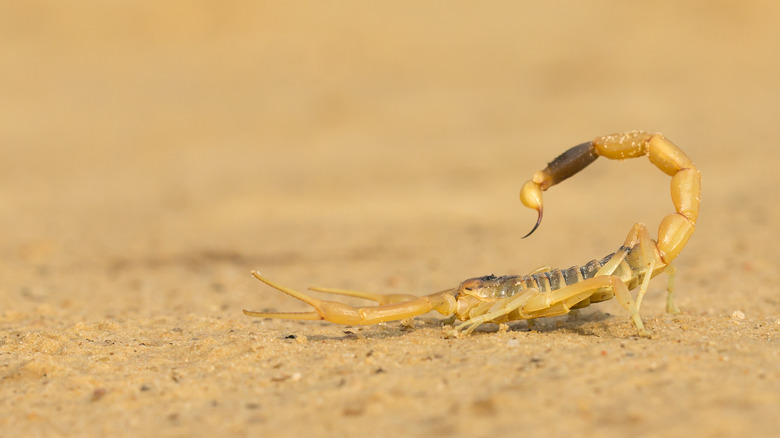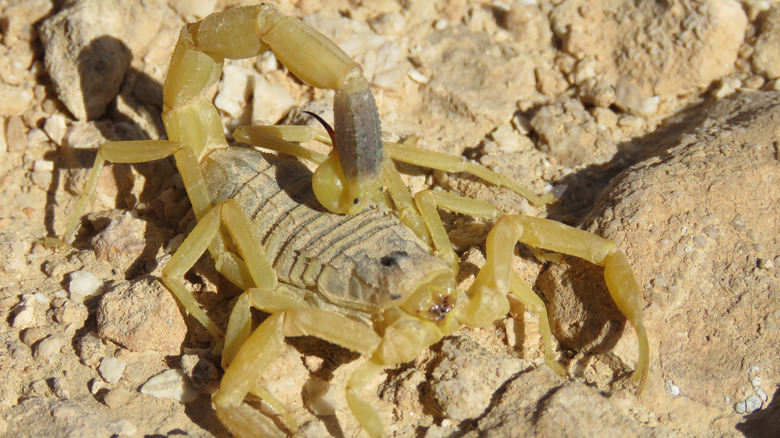This Is The Deadliest Scorpion In The World
The world is filled with critters that you don't want to cross paths with, and we're not talking about wolves, bears, and other animals that can tear an adult human to pieces without breaking a sweat. No, in this context we're talking about creepy-crawlies barely the size of your palm, or smaller. Over hundreds of millions of years of evolution, these animals have developed defense mechanisms that rely not on teeth and claws, but on powerful chemicals stored in their bodies. Indeed, certain snakes, frogs, octopuses, and other animals have evolved to be able to disable a predator with a shot of venom.
One category of venomous creatures is the scorpion, a biological cousin of the spider. If you live in certain parts of the world, it's a solid bet that you'll be within feet of one at some point in your life. And if you live in certain regions of North Africa or the Middle East, you're probably going to cross paths with the deadliest scorpion of them all. Indeed, even its name includes the word "death."
You don't want to be near a deathstalker scorpion
According to American Outdoor Guide, the most venomous scorpion in the world is the deathstalker (Leiurus quinquestriatus). The animal's range includes the desert regions in North Africa and the Middle East, where it spends most of its time hiding out under rocks.
Not only is the critter the most venomous of its scorpion brethren, it also has the fastest delivery mechanism of all scorpions. According to Phys.org, high-speed cameras captured its tail delivering its stinger to its quarry at 51 inches per second. Long story short: there's no avoiding it.
Getting stung by one is not going to be a picnic. While it's unlikely to kill a healthy adult man, in children or people with certain health conditions, a deathstalker sting is a death sentence. Even if you survive, the experience is going to be excruciatingly painful.
It's difficult to say just how many people die each year, on average, from deathstalker stings, due to a variety of reasons, per Discover Magazine. However, scorpions in general account for an estimated 3,000 human fatalities annually, per Phys.org.

